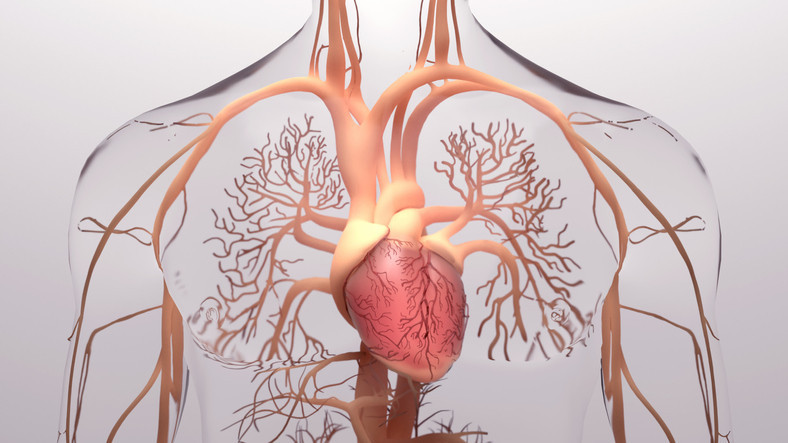
5 timeless habits for better health

What are the symptoms of prostate cancer?

Is your breakfast cereal healthy?

When pain signals an emergency: Symptoms you should never ignore

Does exercise give you energy?

Acupuncture for pain relief: How it works and what to expect

How to avoid jet lag: Tips for staying alert when you travel

Biofeedback therapy: How it works and how it can help relieve pain

Best vitamins and minerals for energy

Should you take probiotics with antibiotics?
Heart Health Archive
Articles
The heart disease gender gap
Women don't fare as well as men when it comes to getting treatment for coronary artery disease. Social and cultural factors may help explain this discrepancy. Women tend to downplay their symptoms and delay seeking treatment. But health care providers may be contributing to this problem, too A major underlying issue may be the underrepresentation of women in clinical trials of heart-related conditions.
Are you headed for a fall?
Cardiovascular conditions can increase a person's risk of falling. Such falls are usually related to a lack of blood flow to the brain that causes a person to faint. The most common cause is orthostatic hypotension, but severe aortic stenosis and the heart rhythm disorder known as atrial fibrillation can also cause a person to faint. Other falls may result from cerebral microvascular disease, a type of blood vessel damage in the brain that develops over time.
Putting potassium in perspective
Too much or too little potassium can harm the heart. Diet, medications, and kidney function can affect the body's potassium level. Dietary potassium helps keep blood pressure in a normal range, but most Americans don't consume enough of this mineral. However, people taking medications that raise potassium levels—which includes certain drugs to treat high blood pressure and heart failure—should avoid salt substitutes made with potassium chloride.
What does the flu have to do with the heart?
For some people, the effects of the influenza (flu) virus can lead to a heart attack or cardiac arrest (sudden death). These people typically have reduced blood flow to the heart due to atherosclerosis (narrowed arteries). Because the flu can cause blood oxygen levels to drop to dangerously low levels, it can further reduce the supply of oxygen to the heart, causing a heart attack or cardiac arrest. Fortunately, getting an annual flu shot is associated with reduced risks of a heart attack and related cardiac events.
How good is your cardiometabolic health — and what is that, anyway?
An analysis shows less than 7% of adults in the US meet the criteria for optimal cardiometabolic health. Taking small steps to help control and improve key risk factors can reduce the odds of a heart attack or stroke.
How does marijuana affect the heart?
An estimated two million people in the United States with cardiovascular disease currently use or have used marijuana. Converging (yet limited) evidence suggests the drug may be harmful to the heart. Marijuana can cause the heart to beat faster and blood pressure to rise. Heart attack risk also appears to rise in the hour after smoking marijuana, and the drug has also been linked to an increased likelihood of atrial fibrillation and stroke.
Addressing poor sleep may help heart health
Growing evidence suggests that poor sleep is linked to a host of health problems, including a higher risk of high blood pressure, diabetes, obesity, and heart disease. Now, a recent study on people in midlife finds that having a combination of sleep problems may nearly triple a person's risk of heart disease.
A new drug to treat heart failure
Most people with heart failure (or those at high risk for it) need several medications to treat their symptoms. New guidelines from the American College of Cardiology/American Heart Association have added another drug class to the treatment list: a group of diabetes drugs called sodium-glucose cotransporter-2 (SGLT-2) inhibitors. SGLT-2 inhibitors offer multiple benefits, such as helping to reduce swelling, lowering high blood pressure, assisting with weight loss, reducing complications associated with heart failure, and preventing hospitalization.
What's driving heart attacks in younger adults?
Seven factors appear to account for most first heart attacks in people ages 55 and younger: diabetes, depression, high blood pressure, current smoking, family history of early heart attack, low household income, and high cholesterol.
Preventing repeat heart attacks: Mediterranean vs. low-fat diet
For people with heart disease, a Mediterranean diet prevents future heart problems better than a low-fat diet.

5 timeless habits for better health

What are the symptoms of prostate cancer?

Is your breakfast cereal healthy?

When pain signals an emergency: Symptoms you should never ignore

Does exercise give you energy?

Acupuncture for pain relief: How it works and what to expect

How to avoid jet lag: Tips for staying alert when you travel

Biofeedback therapy: How it works and how it can help relieve pain

Best vitamins and minerals for energy

Should you take probiotics with antibiotics?
Free Healthbeat Signup
Get the latest in health news delivered to your inbox!
Sign Up











